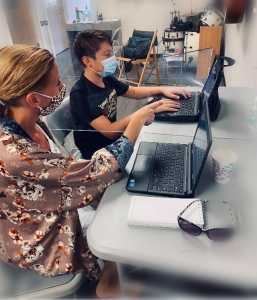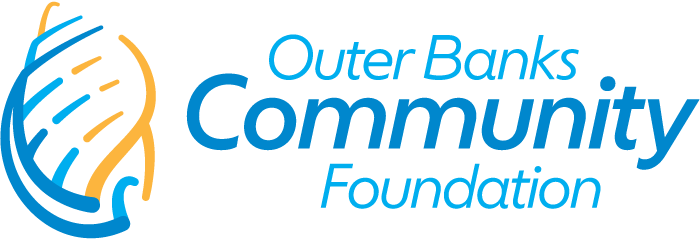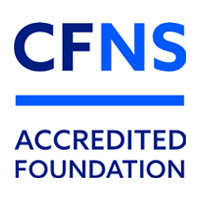2020 and 2021 COVID Rapid Response Grants Impacts

Mustang Outreach Program tutor Lindsey with student participant London
Two years ago, the world was shocked to learn about COVID-19, a new, frightening, and rapidly spreading disease. The entire country was in lockdown. In Dare County, bridges were closed, cutting off the local community from the outside world. The silence on our roads and in our schools and other public places was deafening and surreal.
What many thought would be a couple of months of sacrifice turned out to be a prolonged period of uncertainty, unemployment, and hardship. Perhaps worst of all, our kids were stuck at home without the benefit of team sports, dance classes, school clubs or formal, in-person education.
In response to the crisis, Outer Banks Community Foundation immediately reached out to local nonprofits to offer grant support, wherever they saw need. Now, two years after the onset of the coronavirus pandemic, it is possible to look back at how the Community Foundation’s extraordinary grantmaking to nonprofits helped keep thousands of Outer Banks residents from missing meals, education opportunities, social connections, and more.
In all, the Community Foundation completed eight rounds of Rapid Response grants of over $350,000. These grant awards had both an immediate and a long-term impact for 21 nonprofits and the families they serve.
One of the first challenges of the lock down was providing students with online access for remote learning. Dare County Schools identified nearly 200 students who lacked internet at home and/or stable housing, and requested funding through Dare Education Foundation (DEF) to purchase Wi-Fi hotspots and service for these households. A March 2020 Community Foundation grant to DEF paid for 69 Wi-Fi hotspots, with service for three months; a second grant, in September 2020, provided for an additional 50 hotspots, and data plans for 180 hotspot devices, extending access for all identified families. “Our ability to provide mobile hotspots to students during the pandemic was essential for virtual learning to be fully effective,” said Holly King, Dare County Schools Director of Technology Services. “We are grateful for the support from our community partners that allowed us to make this possible.”
Students on Ocracoke also were in desperate need for connectivity. The lockdown struck only six months past Dorian’s catastrophic landfall, and the majority of island homes and businesses were still in disrepair and disarray. Many Ocracoke students did not have internet service at home. A Community Foundation grant provided for 25 Wi-Fi hotspots. “During the time when we couldn’t work face to face, the hotspots filled an important gap for our students,” said Ocracoke School guidance counselor Mary McKnight.
Supply chain problems and mounting unemployment created food insecurity for many families. One of several grants to address this was a $25,000 collaborative buying grant initiated by Community Foundation Treasurer Pat Regan, a retired food industry executive, and Beach Food Pantry. A tractor-trailer’s worth of food was purchased through Food Bank of the Albemarle and brought to Beach Food Pantry, where it was divided up for use by pantries throughout the Outer Banks.
Food outreach programs to the elderly saw a dramatic increase in requests for services. Home-delivered meals in Dare County increased by more than 40%. Meal exchanges were contactless to protect this vulnerable population; the downside was that socialization for this marginalized and isolated group was severely curtailed. Community Foundation COVID Rapid-Response grants to Albemarle Development Corporation and Hatteras Island Meals bolstered both home-delivery programs.
When schools and businesses closed, Outer Banks parents, grandparents, and guardians scrambled to find appropriate ways to keep kids occupied and up-to-date with their studies. Grants to Interfaith Community Outreach were awarded for financial assistance to struggling families to pay for tutoring and help parents who had to stay home from work to be with their children. Mustang Outreach Program pivoted from its music instruction program to offering in-person tutoring, transforming their space with an influx of new teachers, new student clients, and plexiglass cubicles. Their rigorous safety protocols, which included distancing, masking, and cleaning, were successful—no one in the program contracted COVID-19. “We were able to reach kids when they really needed online help with their school work,” said Mustang Outreach Music Director Ruth Wyand.
“I think it’s safe to say that none of us imagined a disaster like the coronavirus pandemic, not in our wildest dreams,” said Community Foundation CEO Chris Sawin. “Thankfully, the Rapid Response Grants program established after Hurricane Dorian allowed us to respond immediately, in ways that allowed nonprofits to address the needs of Outer Banks families quickly. The many funds established here over the years contributed to these grants, and we are very grateful to the philanthropy and foresight of donors for creating a means to help our community when needs are great.”




